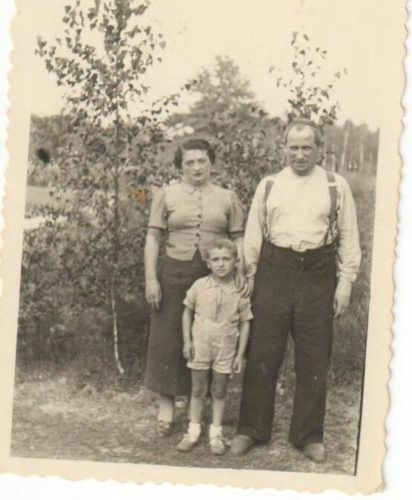
By Grace Bennett
As I read of children and babies held hostage in cages–as little more than bargaining chips–my dad’s singularly monstrous experiences of separation and loss during the Holocaust have come back to haunt me.
Whether you agree that the Holocaust comparisons to the current day madness are fair or not (I admit that I find the comparisons troublesome sometimes), I think when you read this, you might at least agree there are powerful lessons to be learned and that our despair over the abuse and indignities being inflicted on migrant families and especially to the children at our border is entirely warranted.
When any category of people are treated so callously, and our President lies so brazenly about ‘who created the situation,’ as the situation persists, yes, you damn well better question authority to the max, and do not stop.
To protect helpless children, I do beg you: please lose any moral qualms about assuming the worst.
We know full well that the worst is possible. It is all our jobs now to guard against the worst. The worst, the Holocaust taught us, also comes incrementally.
But I digress because my dad’s story as a victim of rock bottom evil speaks for itself…
After being separated from the rest of his family (all of whom–except for my dad and grandfather–were killed at Auschwitz), my father and Wolf (who was two years younger) had managed to stay alive during the Holocaust after being dragged away for ‘work details,’ i.e., slave labor. Together, they suffered and together they survived a series of smaller ‘labor’, i.e., concentration, camps.
Through it all, what meant absolutely the most, what time and again would trigger their survival instinct and help the other through, was that they had each other. They looked out for each other, my dad told me. Being together meant everything.
But then they were sent to Auschwitz, too.
An excerpt (lightly edited) from my Poppy’s memoir.
“The Germans decided to send us to the concentration camp Auschwitz. Arriving there we were greeted by the S.S with the infamous Dr. Mengele. They lined us up and the Dr. was telling us that all injured or too young to do hard work will go to a special location for the injured and children, and will be taken care of.
I had a little suspicion.
He (Mengele) got in front of me, and for some reason, he asked my age. I said 16, and added that we are very good workers.
My brother (Wolf) said nothing; he was younger than me but taller and a fiery red head.
He (Mengele) told my brother to step forward and told him that he will be better off being with children.
Our (Jewish) camp leader was a 6’ tall guy. He showed the S.S. officer his damaged finger, so he told him to also go with the children and take care of them.
In the meantime my brother came running back asking for half of the bread we still had.
I begged him to stay with me, but he argued I should go with him.
One of the soldiers noticed the commotion and asked what was going on.
I said that I have the whole bread, so he said to break the bread in half and give that to him.
They went one way, and we vent to shower, change our civilian clothing into striped uniform and we all got tattoos injected into our forearms.
My # was 141940 with an upside triangle underneath.
After arriving in the quarters assigned to us, we went outside of our building, meeting people from other buildings, telling them where we came from,
I mentioned that I came here with my brother who was transferred to a camp for children.
He told me to look at the smoke in the background, and said, “That’s were your brother and all the others are, being incinerated…”
In Wolf’s memory, may the gross mistreatment, abuse, and human rights violations of children at America’s border–AMERICA’S border–STOP. We are better than this.
Grace Bennett is Publisher and Editor of the Inside Press. She has been on the board and advisory board of the Holocaust and Human Rights Education Center since 2007 and is a member of Women’s March for All. Her father (‘Poppy’) Jacob Breitstein is a 96-year old Holocaust survivor.
